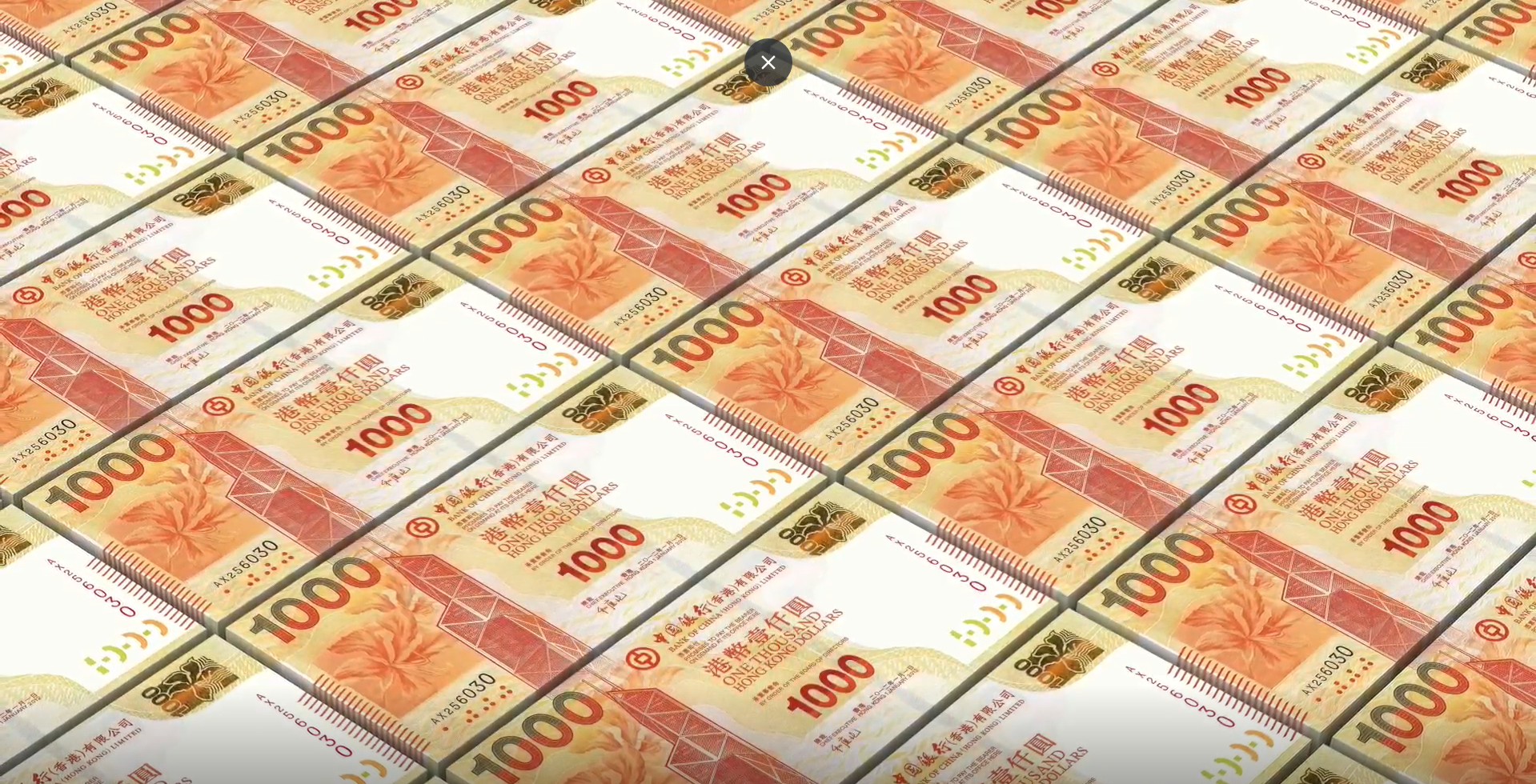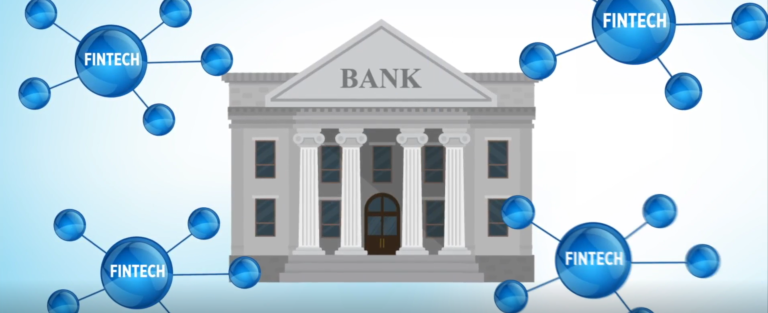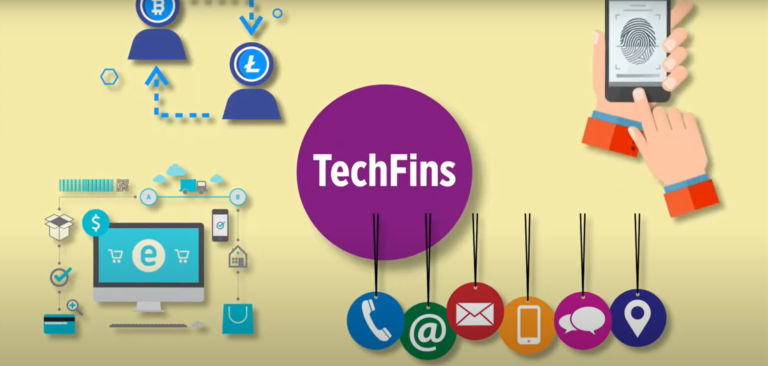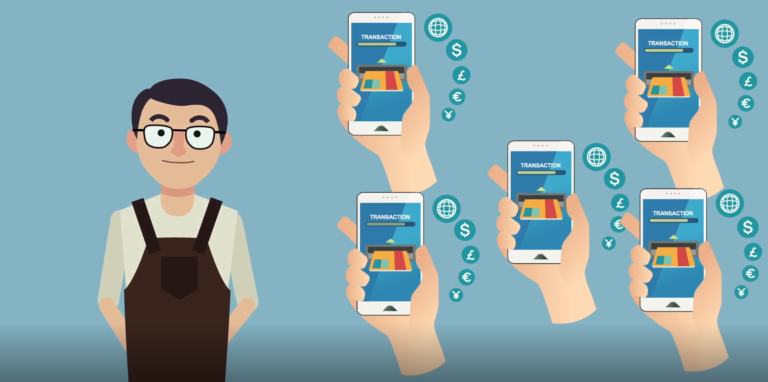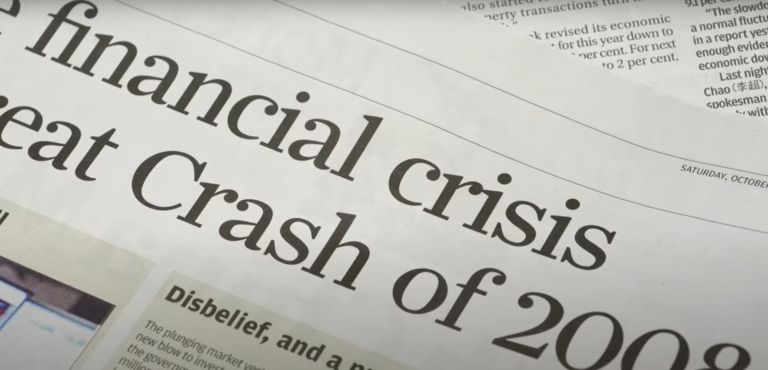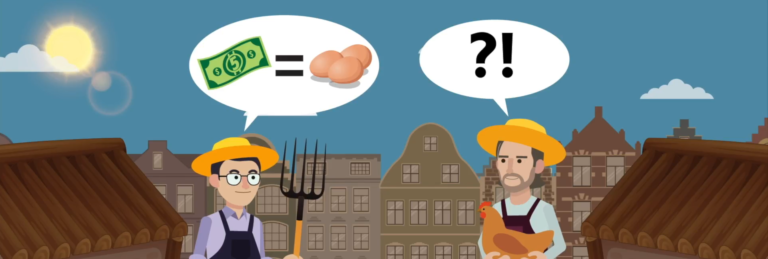Transcript
Another interesting lesson from the street vendor example, was that value was being transferred, but was this money in a traditional sense? It wasn’t physical currency, that’s for sure. But there was currency backing that transaction, even if, distantly, on some cloud somewhere. This is very different from systems of payment that have existed for thousands of years, and will likely lead to the next evolution of not only how we pay, but also our perception of money.
Another interesting vignette or an example, is in North Korea, traditionally a country that we think is cut off from the global financial system. Increasingly many people in North Korea now use cell phones. And frequently they have to top up, like in other countries in the world, to buy credits. But now those credits can be transferred from one user of a cell phone to another as a form of payment. And so this is also a different concept of money.
This reminds us of one of our favourite things about living in Hong Kong, the Octopus Card. With this little card, we can pay for just about anything: transportation, food, and even government services. We’ve used this card practically every day since we moved to Hong Kong. And our children almost exclusively use their cards to make purchases.
While some may say that the shift to making payments from phone apps or the Octopus Card is just the next natural iteration in making payments, much like the credit card and the handwritten cheque before that and that people just get used to the changes in the way that, children in Hong Kong are already used to paying with an octopus card for when they go to the store. We do need to understand that such changes can actually have very significant implications for society.
For example, there are personal implications. As we know, these developments can make it easier to access and use money, having your credit card means you don’t have to carry around thousands of dollars in cash to make a purchase, for example. But on the other hand, studies seem to indicate that people spend more money when using a credit card than when using cash. And there’s reason to believe that people spend even more money when using an app or a web-based service than when using a credit card. It’s believed that the proximity issue that we discussed previously has a lot to do with this. This is pretty common sense, right, holding cash is proximate, and therefore forces us to think about the work that went into earning the money. Thus we naturally spend less when we’re holding cash.
But beyond these personal implications, as mentioned before, there are broader societal implications to consider. Now going back to David Bishop’s experience with the street vendor. This was a great example of disruption of the many formidable institutions that for millennia have controlled not only finance, but most other aspects of institutional power. Remember, there were no banks, whether physical or virtual, in this scenario. WeChat isn’t a bank or even a financial institution in the traditional sense. That’s why we refer to them as TechFins: large technology companies that because of their size, user base and overall scale, are starting to move into areas of commerce and services traditionally controlled by banks.
Not only were there no banks but there was also no physical currency. As I’m sure you’re aware, banknotes and coins can only be produced by government-approved organisations. For example, US dollars are printed by the Bureau of Engraving and Printing and are issued by the Federal Reserve. In Hong Kong, banknotes are printed by the Hong Kong Printing Limited, and issued by three banks: Bank of China Hong Kong Limited, Shanghai Banking Corporation Limited, more commonly known as HSBC, and Standard Charter Bank.
Okay, so who cares? You’ve all probably held and seen foreign currency at some point in your life, and know how it can be a pain to exchange currency when going from country to country. You’ve also probably had the experience of shopping in another country, and trying to convert the cost of something from one currency to another. Now, to be honest, although David Lee has lived in Hong Kong for nearly ten years, he still finds himself frequently converting the price of a good into US dollars just to help him get a better sense of the cost or value of that particular item.
The reason this matters is a combination of trust and power. The value of currency is only sustained by a broad sense of communal trust, and by changing the nature of money, we are potentially altering the foundations of trust, which can have broad implications across society.
But also, this is about power. The ability to print your own currency is a significant source of power. Maybe you’ve seen a movie where criminals try to steal or create ink plates so that they can print their own money. (That was a dream of David Bishop when he was a kid.) There’s been a lot of discussion about the power the United States has in the world because of the outsize influence of the US dollar, which is widely considered the world’s reserve currency.
As an example, the Hong Kong Dollar is pegged to the US dollar, meaning the value of the Hong Kong dollar rises and falls along with the US dollar. So think about how much power that involves. It means that some folks in the US that maybe have never even been to Hong Kong, can change the value of our currency here, which in turn can affect the cost of everyday goods, housing prices, the value of your personal savings, company profitability and many many other things.

